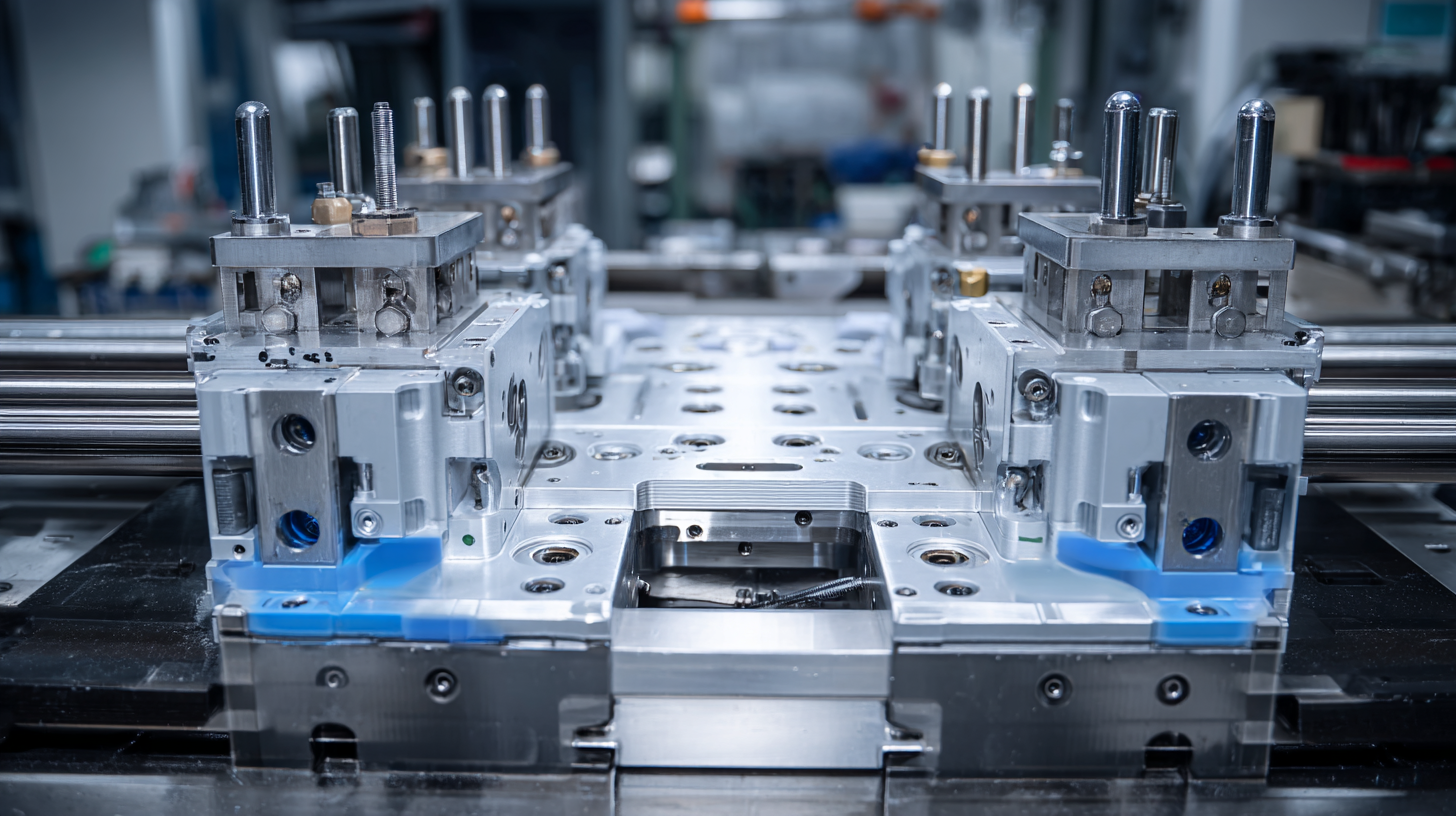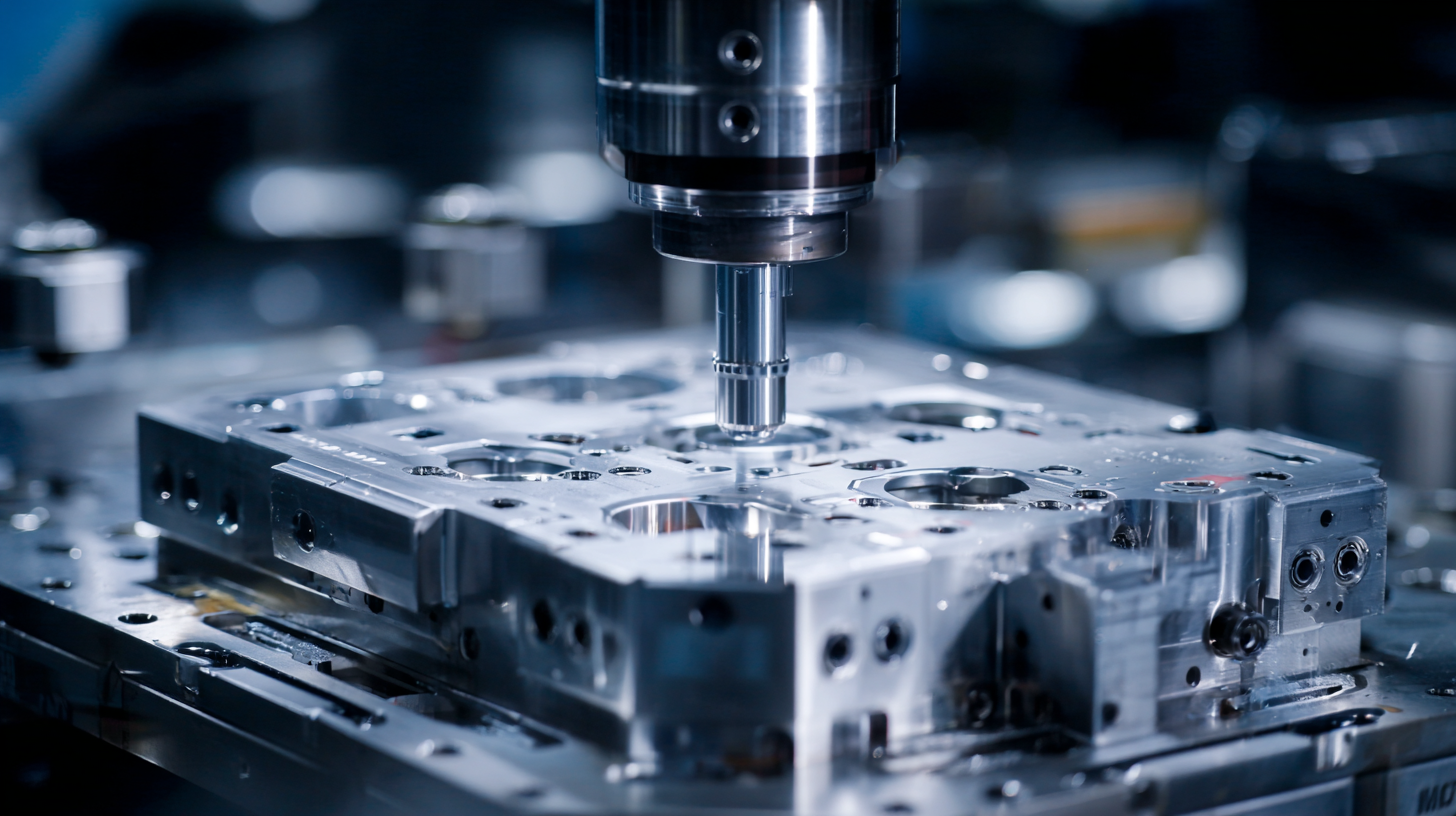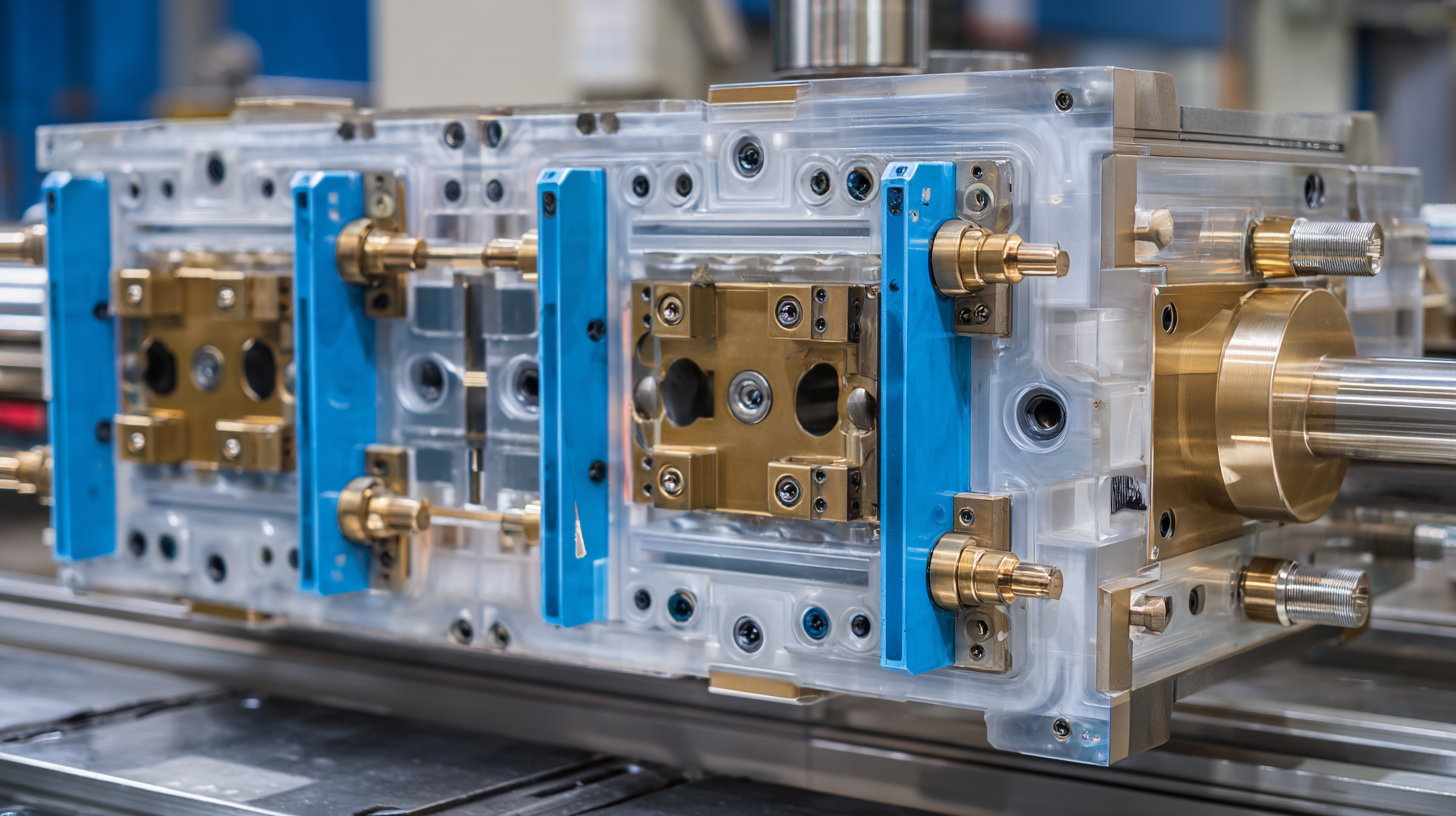As the injection molding tooling industry continues to evolve, global buyers are increasingly seeking innovative alternatives that enhance efficiency and reduce costs. According to the "Global Injection Molding Market Analysis 2025" report, the market is projected to reach USD 403.59 billion by 2025, driven by the growing demand for lightweight and durable materials across various sectors, including automotive, healthcare, and consumer goods.

With advancements in technology and materials science, companies are now presented with diverse tooling options that not only improve production speed but also meet stringent quality standards. This blog will delve into the latest trends, technologies, and methodologies that are shaping the future of injection molding tooling, offering insights for buyers looking to optimize their sourcing strategies in this competitive landscape.
The Future of Injection Molding: Emerging Trends and Technologies
As industries evolve, so too does the technology behind injection molding. Today, advancements in automation, data analytics, and smart manufacturing are redefining how products are designed and produced. One of the most talked-about trends is the integration of Industry 4.0 principles, which leverage IoT devices and real-time data to enhance efficiency and reduce downtime. This shift not only streamlines the production process but also creates opportunities for personalized manufacturing, allowing companies to respond swiftly to market demands.
Tip: Implementing predictive maintenance solutions can significantly reduce unplanned outages, thereby enhancing overall productivity. Embracing these technologies will enable manufacturers to stay ahead in an increasingly competitive market.
Additionally, sustainable practices are gaining traction within the injection molding landscape. Innovations such as bio-based materials and energy-efficient machinery are helping to minimize the environmental impact of production. These emerging technologies not only focus on reducing waste but also aim at recycling and reusing materials, ultimately leading to a closed-loop system in manufacturing.
Tip: Consider partnering with suppliers who prioritize sustainability in their processes; this can enhance your brand's reputation while contributing to environmental stewardship.
In the ever-evolving industry of injection molding tooling, sustainable practices are gaining significant traction. Innovations are emerging that focus on eco-friendly solutions, reducing waste, and minimizing the environmental impact associated with traditional manufacturing processes. Recent advancements include the development of bio-based solutions that enhance the sustainability of packaging while maintaining productivity and efficiency. Such innovations not only cater to the growing demand for eco-friendly products but also align with societal shifts towards circular economy principles.
Tips for adopting sustainable practices in injection molding include investing in simulation software that optimizes design and process efficiencies. This technology allows for the replication of real-world systems, enabling manufacturers to identify the best approaches for reducing material use and energy consumption. Additionally, consider exploring alternative materials, such as recycled plastics, which can significantly minimize the ecological footprint of production processes. Furthermore, the integration of conformal cooling designs in mold manufacturing can lead to improved energy efficiency and reduced cycle times, further supporting sustainable objectives.
| Alternative Material | Eco-Friendly Property | Benefits | Application Areas | Cost Implication |
|---|---|---|---|---|
| Recycled PET | Recyclable, Reduced Carbon Footprint | Lower material costs, energy savings | Consumer Goods, Packaging | Moderate |
| Bio-based Plastics | Biodegradable, Made from Renewable Resources | Sustainability marketing advantage | Food Packaging, Medical Devices | Higher |
| Wood-Plastic Composites | Recyclable, Reduced Plastic Usage | Durability, Attractive appearance | Construction, Furniture | Moderate to High |
| Hemp Plastics | Biodegradable, Renewable Resource | Strong mechanical properties | Automotive, Consumer Goods | High |
In today's fast-paced manufacturing landscape, global buyers are constantly seeking cost-effective alternatives to traditional injection molding tooling. The quest for budget-friendly solutions has spawned innovative approaches that not only reduce expenses but also enhance production efficiency. One such alternative is the use of 3D printing technologies, which allows for rapid prototyping and the ability to produce complex geometries that conventional methods struggle to achieve. This flexibility can lead to substantial savings in both time and material costs, making it a compelling option for businesses looking to optimize their operations.

Another noteworthy alternative is the adoption of modular tooling systems. These systems enable manufacturers to interchange components easily, allowing for quick adjustments in production processes without the need for entirely new molds. By minimizing downtime and reducing the overhead associated with tooling changes, companies can significantly decrease their overall production costs. As global buyers navigate the intricacies of the market, identifying these innovative solutions can be pivotal in maintaining competitive pricing while ensuring product quality remains uncompromised.
The role of automation in tooling innovations has become increasingly pivotal as the manufacturing landscape rapidly evolves. According to market research, Europe is projected to experience a robust compound annual growth rate (CAGR) of 12.5% in the smart manufacturing sector during the forecast period, positioning it as the third-largest market globally. This growth underscores the necessity for manufacturers to embrace automation to enhance efficiency and adapt to complex operational requirements.
In the oil extraction industry, advancements such as the automated power catwalk system signify a shift from manual to automated processing of piping, demonstrating the direct benefits of smart manufacturing technologies. This device facilitates the dual-directional automated transport of pipe columns, significantly reducing manual labor and improving safety standards on drilling sites. As we observe these transformations, the focus on integrating automation into tooling processes will not only streamline production but also redefine industry standards, marking a significant stride towards a fully automated future in manufacturing.
This bar chart illustrates various innovative tooling technologies and their adoption rates among global manufacturers in the smart manufacturing sector. The data reflects trends in tooling preferences that leverage automation.
As we look towards 2025 and beyond, the injection molding industry is poised for substantial evolution driven by technological advancements and shifting market needs. One of the most significant trends is the integration of automation and artificial intelligence into the production process. These innovations aim to enhance accuracy, reduce waste, and optimize production rates, enabling manufacturers to meet the growing demand for customized and high-quality products. Companies looking to stay competitive must embrace these technologies to streamline operations and improve overall efficiency.

Sustainability is another major factor shaping the future of injection molding. With escalating concerns about environmental impact, manufacturers are increasingly focusing on eco-friendly materials and energy-efficient processes. Advances in biodegradable plastics and recycled materials are set to revolutionize product offerings. Moreover, the adoption of circular economy principles will encourage companies to rethink their supply chains and production methodologies, aligning them with global sustainability goals. As we anticipate these market shifts, buyers must stay informed and ready to adapt to the innovative alternatives emerging in the injection molding landscape.
880 W 9th Street
Upland, California 91786
884 W 9th Street
Upland, California 91786
886 W 9th Street
Upland, California 91786
884 W 9th Street
Upland, California 91786